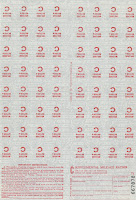 We are always blogging about the really cool things you can find in Rauner. Usually, once things come here, they stay, but today we focus on one of our favorite things that we are losing. Dean of Libraries, Jeffrey Horrell, is retiring in June. A frequent denizen of Rauner, when he is here, he is definitely one of the coolest things not exactly in the collections, but among the collections.
We are always blogging about the really cool things you can find in Rauner. Usually, once things come here, they stay, but today we focus on one of our favorite things that we are losing. Dean of Libraries, Jeffrey Horrell, is retiring in June. A frequent denizen of Rauner, when he is here, he is definitely one of the coolest things not exactly in the collections, but among the collections. We thought we might be able to declare him a part of the archives, but then we realized we would have to put a twenty-five year restriction on him (Dean's records, you know), and that seemed a little unfair to his family and friends. So, he'll just be deaccessioned and cast out into the world.
We thought we might be able to declare him a part of the archives, but then we realized we would have to put a twenty-five year restriction on him (Dean's records, you know), and that seemed a little unfair to his family and friends. So, he'll just be deaccessioned and cast out into the world.We will miss the delight he took in everything he saw in Rauner and his unceasing support for the collections. But, what we will miss most is the care, thought, and support he gave all of us everyday. He made us better at what we do, and made Dartmouth a more humane and decent place to work.


